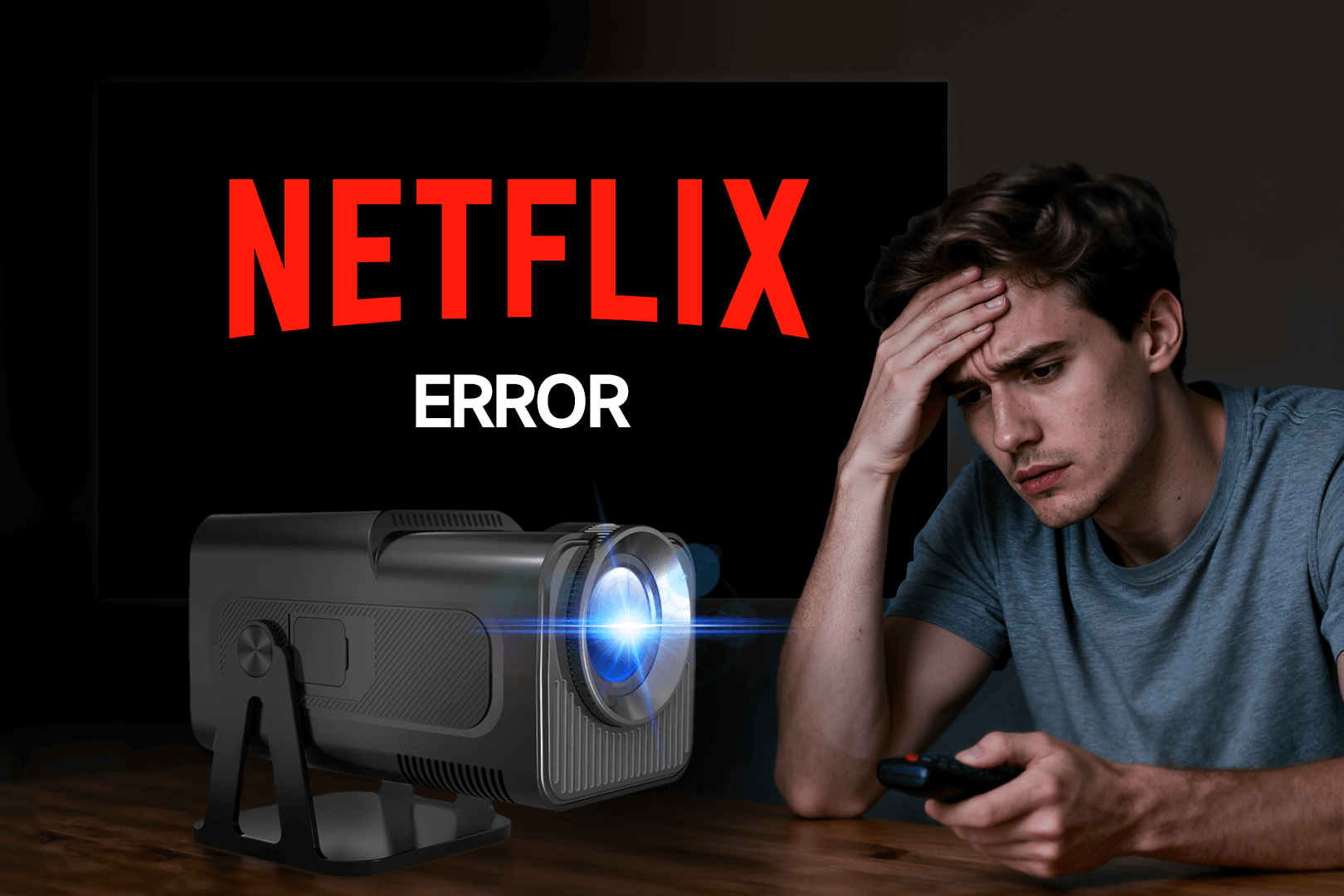When it comes to buying a projector, most people look at brightness, resolution, or portability. But one often-overlooked factor is codec support—the technology that determines how video files are compressed, transmitted, and played back. Two of the most important codecs today are HEVC (H.265) and AV1.
Understanding the difference between these two can help you choose a projector that not only works well today but also stays useful in the years to come.

What Are Video Codecs?
A video codec is a technology that compresses and decompresses video files so they can be stored, streamed, and played back efficiently. Without codecs, 4K or 8K videos would take up massive amounts of space and bandwidth.
HEVC (H.265): The long-standing successor to H.264, HEVC delivers high-quality video at lower bitrates. It’s widely used in Blu-ray, broadcasting, and streaming platforms, especially for 4K content.
AV1: A newer codec created by the Alliance for Open Media (Google, Netflix, Amazon, Microsoft, and others). AV1 is royalty-free and offers even better compression efficiency, making it attractive for streaming platforms and device makers.
Why Codecs Matter in a Projector?
A projector without the right codec support might not play certain files smoothly—or at all. Instead, you’d need external players or devices to decode the video. Choosing the right codec support ensures your projector can handle modern streaming apps, large 4K files, and future formats.
Some modern projectors, such as the Magcubic L018NTV, support AV1 and HEVC videos. Whether they are streaming Netflix or playing 4K files from local storage, users can enjoy flexible playback.
AV1 vs HEVC: Key Differences
|
Feature |
HEVC (H.265) |
AV1 |
|
Compression efficiency |
High – about 50% smaller than H.264 |
Even higher – up to 30% smaller than HEVC |
|
Compatibility |
Established – supported by most projectors, TVs, Blu-ray, and streaming services |
Expanding – already on YouTube, Netflix, Chrome, Android 14, Windows 11 |
|
Hardware decoding |
Common – most modern devices include it |
Emerging – requires newer hardware for smooth playback |
|
Licensing |
Patent-licensed – adds costs for manufacturers |
Royalty-free – easier adoption for future devices |
|
Best suited for |
Current use, wide compatibility |
Future-proof streaming, high efficiency |
Which Projector Should You Choose?
1. HEVC Projector
HEVC remains the safest choice because it’s universally supported across projectors, TVs, and streaming platforms. If you want guaranteed playback for Blu-rays, cable TV, or older streaming devices, choose a projector with strong HEVC support.
2. AV1 Projector
AV1 is rapidly gaining traction as more platforms (like YouTube and Netflix) deliver 4K and 8K content encoded in AV1. A projector with AV1 hardware decoding ensures smoother streaming, smaller file sizes, and energy efficiency.

3. Dual Codec Support
Some modern projectors now support both HEVC and AV1 decoding. This gives you maximum flexibility—great performance today with HEVC and readiness for the future with AV1. Most Magcubic projectors support HEVC and AV1, such as L018NTV, HY450C, and HY300Pro. This ensures that users can rest assured whether they are at home, outdoors, or on the go.
Final Thoughts
Codec support may not be the first thing you consider when buying a projector, but it can make a big difference. HEVC provides stability and compatibility right now, while AV1 offers efficiency and future-proofing. If you want the best of both worlds, choose a projector with dual support to ensure smooth, high-quality playback for years.
FAQs
1. How does codec support affect image quality on a projector?
Codec support itself doesn’t directly impact image quality, but it ensures that your projector can decode modern video formats efficiently. This helps maintain high-quality playback without buffering or stuttering, particularly with higher-res content.
2. What’s the main advantage of choosing a projector with both AV1 and HEVC support?
By supporting both codecs, projectors offer maximum versatility, allowing users to enjoy a wide range of content—from local 4K files to modern streaming services—without needing external devices.



